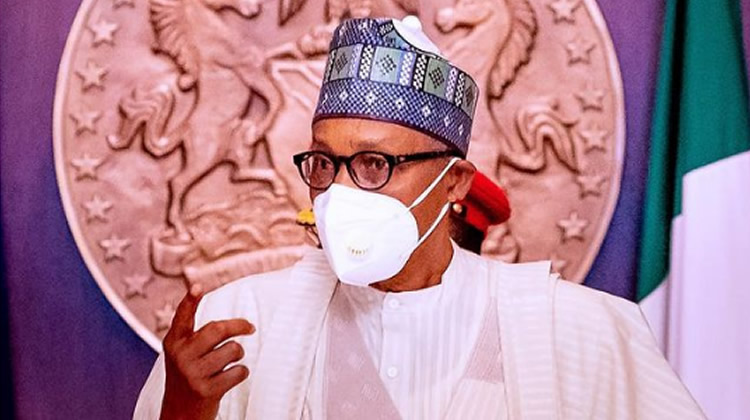Electoral bill: Presidency mum as timeline for Buhari’s assent elapses today
The Presidency is keeping mum as the 30-day timeline for President Muhammadu Buhari to assent to the electoral bill elapses on Sunday.

The Presidency is keeping mum as the 30-day timeline for President Muhammadu Buhari to assent to the electoral bill elapses on Sunday.
Buhari had on Thursday left Abuja for Istanbul, Turkey, to attend the third Turkey-Africa Partnership Summit, hosted by President Recep Tayyip Erdogan of the Republic of Turkey.
- Presidency Source: Why Buhari is yet to act on Electoral Bill
- Buhari, wife, 7 Ministers off to Turkey for summit
The National Assembly had on November 19, this year, transmitted the bill to President Buhari for assent. Section 58 (4) of the 1999 Constitution states, “Where a bill is presented to the president for assent, he shall within 30 days thereof signify that he assents or that he withholds assent.”
Checks by our reporter showed that the 30-day timeline elapses today, December 19, 2021. If President Buhari refused to sign the bill on the expiration of the stipulated days and the National Assembly is not in support of the president’s reservations, the Senate and the House of Representatives can recall the bill and pass it.
The Attorney-General of the Federation, Abubakar Malami, a Senior Advocate of Nigeria (SAN), had written a letter to Buhari, highlighting the problems with the inclusion of mandatory direct primary election in the bill.
He informed the president that making the direct primary mandatory for all political parties could cause confusion.
Daily Trust on Sunday reports that there has been a cold war between federal lawmakers and governors over the inclusion of the direct primary election in the bill, with the latter mounting pressure on the president not to sign it.
While governors, including those who are members of the All Progressives Congress (APC), have waged war against the signing of the bill, the parliamentarians, including Senate President Ahmad Lawan and Speaker of the House of Representatives, Femi Gbajabiamila, want the bill to be assented to strengthen the country’s democracy.
Top civil society groups in the country have also appealed to the president to sign the bill. President Buhari had sought the advice of relevant government agencies on the bill.
Last night when this report was being filed, there was no information from the Presidency on the bill.
Meanwhile, a human rights lawyer, Femi Falana (SAN), has picked holes with the letter attributed to Malami for not being anchored on the law.
Sources confirmed that Malami had written to President Buhari, advising him not to sign the bill due to the mandatory direct primary, stating that it would mean that all the existing parties would have to change their constitutions.
But reacting to the statement, Falana said the advice was not in the national interest but based on political consideration.
“The president should ignore misleading advice from unsolicited quarters, particularly potential governorship aspirants.
“The question of political parties amending their constitutions to accommodate direct primary elections does not arise as they are already part and parcel of the electoral law.
“In any case, it is trite law that in the hierarchy of superiority of regulations, the provisions of the electoral act are higher than the rules or constitutions of political parties,” he said.
Falana said various courts have already upheld Section 87(1), (2) & (3) of the Electoral Act 2010, which empowers political parties to nominate their candidates through either direct or indirect primaries. He cautioned against creating the impression that direct primary election is new in the law.
